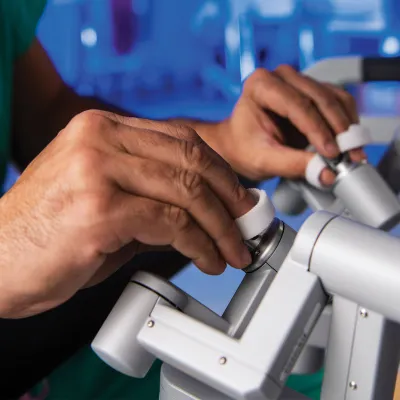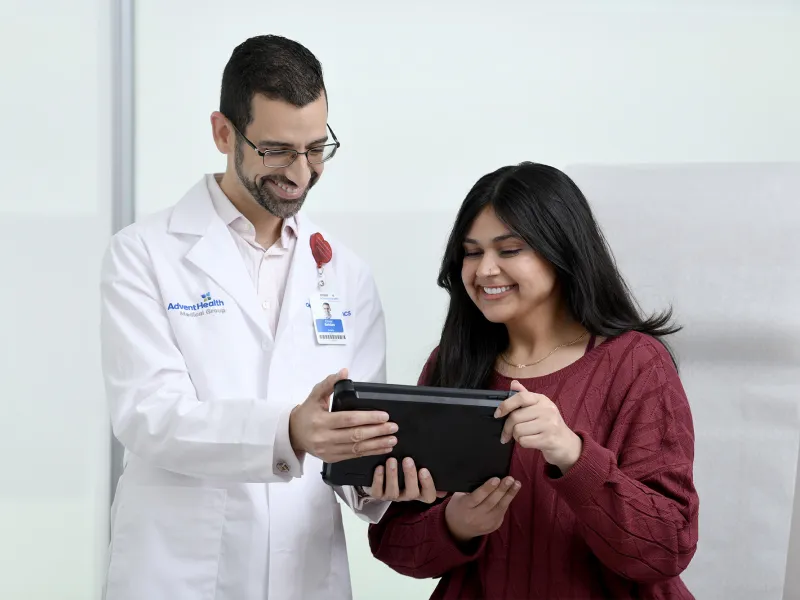Endoscopy for IBD
Endoscopy is any number of minimally invasive procedures that allow doctors to look inside the digestive tract. Endoscopic procedures help doctors diagnose Crohn’s disease or ulcerative colitis. If you have been already diagnosed with IBD, then your ongoing treatment likely includes routine endoscopy to check for signs of IBD in your digestive tract.
The main endoscopic procedures used for IBD include:
- Colonoscopy / Flexible Sigmoidoscopy used to look inside the rectum and colon to diagnose both Crohn’s disease and ulcerative colitis.
- Capsule Endoscopy / Deep Enteroscopy used to see inside the small intestine for patients with Crohn’s disease. Enteroscopy allows doctors to take small samples from the lining of the intestine for biopsy to help with diagnosing Crohn’s disease.
- Upper Endoscopy (Esophagogastroduodenoscopy) used to check for signs of Crohn’s disease in the esophagus, stomach or first part of the small intestine (duodenum). An upper endoscopy may be used to help distinguish between ulcerative colitis and Crohn’s disease. Patients with ulcerative colitis will not have IBD outside of the colon and rectum.
Endoscopy Services for IBD
-
Capsule Endoscopy and Deep Enteroscopy
A capsule endoscopy allows doctors to see into the small intestine, which can be important in diagnosis gastrointestinal bleeding, polyps and cancer. Learn more.
-
Colonoscopy / Flexible Sigmoidoscopy
A colonoscopy or sigmoidoscopy is a way for doctors to see inside the colon and rectum to identify issues and perform biopsies. Contact our colon and rectal surgeons today.
-
Upper Endoscopy / Esophagogastroduodenoscopy (EGD)
An upper endoscopy helps doctors look at the esophagus, stomach and first part of the small intestine and can help diagnose a range of conditions.

Recover Faster With Minimally Invasive and Robotic Surgery
The expert surgeons at the AdventHealth Digestive Health Institute have a large depth of experience in offering minimally invasive surgery.

Meet Your Dedicated Experts
Our specialists are passionate about providing collaborative care that addresses your unique needs and goals while ensuring you feel informed and supported every step of the way. Learn more about our team and their areas of expertise.

Surgical Consultations For Digestive Cancer Without the Wait
Appointments Within Seven Days for Patients with Cancer
At AdventHealth Digestive Health Institute, we know that after being diagnosed with cancer, patients want and often need to begin treatment quickly. So we make it a priority to offer appointments for cancer surgery consultations within five business days, and often earlier.
Patients who are newly diagnosed with cancer, or have just found out they have cancer again, qualify for this priority access. Our surgeons will make themselves available to see you right away, even for a second opinion. We want to help you start your treatment as soon as possible.
Let Us Help You Feel Whole Again
Whether you’re experiencing new symptoms or want a second opinion on a diagnosis, our dedicated digestive health experts are here to help you find answers and a path forward. Request an appointment today to take charge of your health and get the personal support you need.
